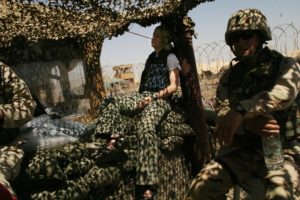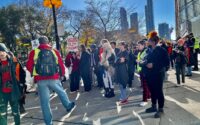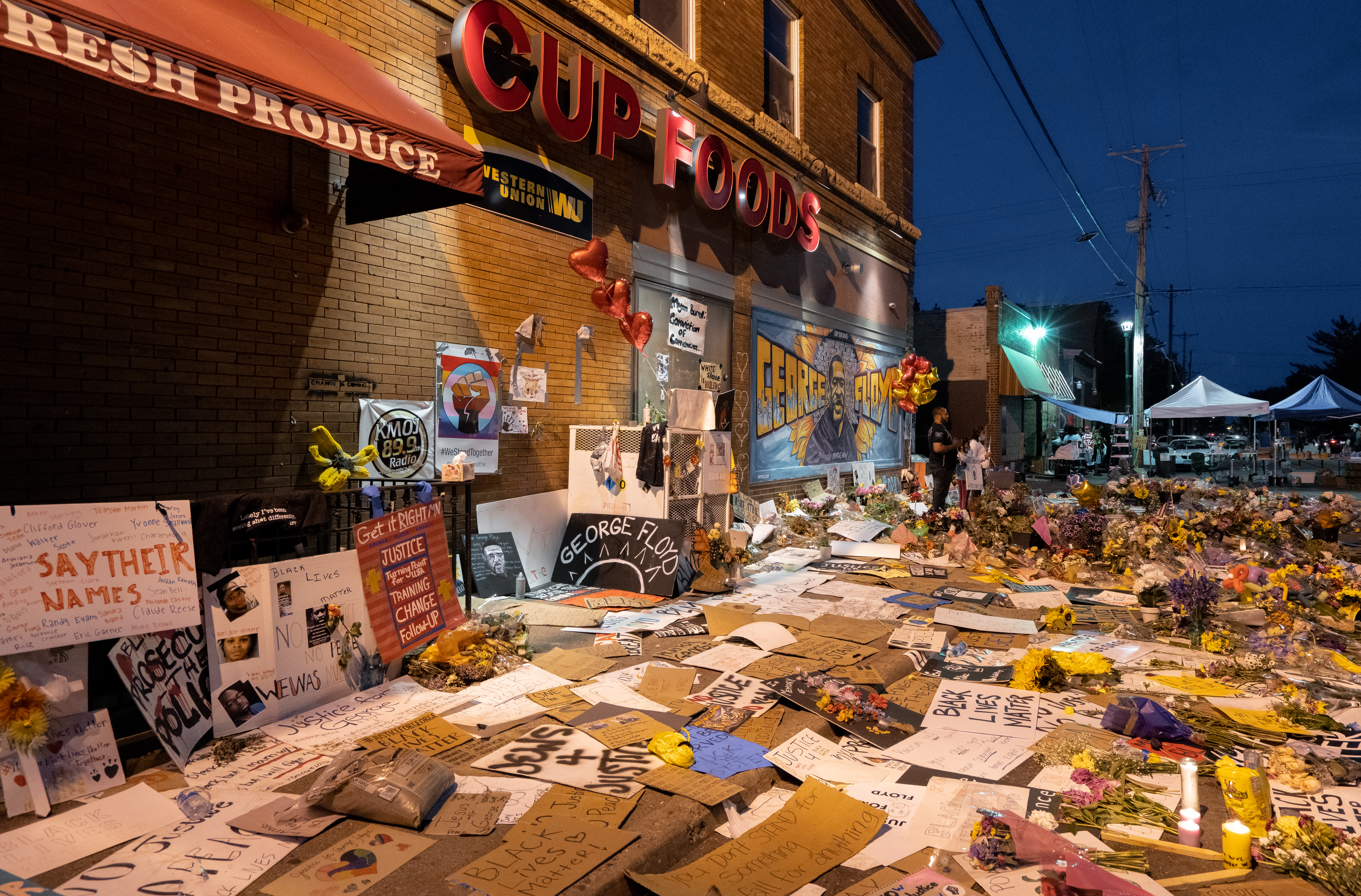When Trump attacks: a surreal moment for American journalists
At a campaign rally in Montana on Oct. 18, U.S. President Donald Trump openly praised a politician who assaulted a journalist. There is not a single word in that sentence that could be described as fake news.
Trump was in Montana. There was a campaign rally. And video and audio reports, including one from Fox News, captured him lauding Rep. Greg Gianforte for an incident in 2017 in which the Montana congressman assaulted a reporter from the Guardian newspaper after he asked a question about health care policy. Gianforte pled guilty. All facts.
“Any guy that can do a body slam, he’s my kind of — he’s my guy,” Trump said.

(Photo by Andrea Bruce)
The day before I was in my classroom at Columbia College Chicago talking to my global reporting students about Jamal Khashoggi, the journalist who was killed by Saudi Arabian agents in Turkey. Several of my students acknowledged that Khashoggi’s disappearance and death made them question whether they wanted to be a foreign correspondent. It seemed so dangerous, they told me. I showed them how to search the database of the Committee to Protect Journalists to see for themselves what kind of dangers they might face. As a former war reporter and foreign correspondent for The Washington Post, I wanted them to understand that while conflict reporting is inherently dangerous, the real threat to journalists around the world comes from authoritarian regimes and are most often directed at journalists from those countries.
Khashoggi, I pointed out, was likely killed by his own government. It’s not that I wanted to minimize the dangers to American journalists who report overseas. I certainly had my share of close-calls in the Middle East. After all, the proximity to war makes people vulnerable. But I also didn’t want to exaggerate the danger, and I wanted them to understand that the real threat is for people we interview, to the local reporters who pursue the truth in their own countries. Of the 186 journalists killed in Iraq since 1992, the majority were Iraqi.
I woke up the morning after the Montana rally to the news reports about Trump’s vitriol and found myself increasingly growing angry. But I’m a journalist, a working journalist who edits this magazine and produces work from overseas and still writes occasionally for The Washington Post and other outlets. I practice what I teach my students and keep my political comments to myself. I don’t engage in political debates on social media. I try hard to be objective and to keep my work objective, to pursue objectivity and not an agenda. This is counter to the narrative that has emerged and that the president himself has encouraged about people like me who are dedicated to the craft of journalism.
So I sat for a good 20 minutes staring at the words I wrote in a Facebook post before I shared it.
I shared the post to my network of friends and several of them immediately asked if I could make the post public. No, I explained. I have children. I don’t want to be trolled. “I hate that I’m being a chicken shit about this,” I told a friend who is married to a reporter. But if my fellow Americans can see me as the “other,” I can only imagine how they’d view my African-born children from a Muslim country.
The fact is that it’s a scary time to be a reporter in America. I have family members who cheer on the president of the United States when he disparages my profession. I have not lived through a more polarizing time in America. It breaks my heart and makes me sick to my stomach, but I push on because journalism is all I know. I started reporting when I was 13 years old and have been doing it my entire adult life. I do it because it’s my right as an American and because I believe that we, as citizens — and that’s what I am — need to hold our government accountable, even when it’s uncomfortable, even when people hate us.
As numerous recent studies have shown, our readers and the viewing public, even the ones that call us names, suffer when we go away. Journalists are the check on how taxpayer funds are spent, on how our politicians represent us in trade deals, on the smallest details that affect our lives, including zoning ordinances and changes in traffic laws.
But it’s more than that. As I tell my students every semester, “someday, you may be the only person in the room when someone is holding a gun to a man’s head. You can’t afford to turn away. That’s why you are there.”
I can’t turn away when the president of the United States points his finger at my profession and uses his position as the leader of my country to tell my fellow Americans that it’s okay to attack me. It’s not okay. I’ll say it again. It is not okay.
Jackie Spinner is the Midwest Editor for Gateway Journalism Review. To sign up for GJR’s weekly newsletter, please click here.


